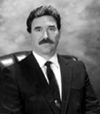 | Ed Clausen M.A
M.A. Audiologist, CCC-A is a licensed Audiologist under the Kansas Department of Health and Environment. He received his CCC-A in 1994 and serves as Company Audiologist for the 18 company offices of Midwest Hearing Aids, Inc. in Kansas. He holds memberships in the American Speech/Language and Hearing Association, the Kansas Speech/Language and Hearing Association, and the Kansas Hearing Aid Association. You may contact Ed at Midwest Hearing Aids corporate office in Wichita at 1 (800) 668-4055 or locally at (316) 264-2411. |
Audiology
2002-10-01 13:43:00
How close to normal?
Ed Clausen
Question: Do hearing aids restore total normal hearing?Answer: Hearing aids do not restore normal hearing. The ear is a complex organ, and once it is damaged, a hearing aid cannot overcome every deficit that the damage creates. Hearing aids are sometimes compared to glasses, but while glasses restore normal vision very quickly, hearing aids do not restore perfect hearing, and the process is not quick. Hearing aids do help people with a hearing impairment a great deal; studies have proven they improve quality of life.The normal ear perceives a wide range of pitches. When the most common type of hearing loss is present, the ear will become less sensitive to some pitches, or frequencies. However, sensitivity is not lost in other frequencies; in fact, sometimes even normal hearing is maintained in those regions. In the majority of cases, the frequencies that are damaged and lose sensitivity are the higher ones. Hearing aids are designed to give more power to the frequencies that are lost, while giving less power to the frequencies that do not need it. The result is that the user is now able to hear the frequencies with the hearing aid that his/her ear cannot do alone. However, since the process of losing hearing is usually a gradual one, the individual's brain is not used to processing these frequencies and cannot do it as well as it once could. Therefore, the amplified signal is being fed through a compromised system, and being processed by a brain that does not do it as accurately as it could prior to the hearing loss. The result is sound that is not normal, and it takes a period of time for the user to get used to this sound.However, hearing aids do help people with hearing impairments a great deal. Users will be able to hear sounds that they have not heard for a while, from environmental sounds like birds chirping or a squeaky door to speech. Where speech may have sounded muffled prior to being fit with hearing aids, speech in quiet will sound clearer after being fit with appropriate amplification. Loud sounds will still be loud, but they should be tolerable. It has been demonstrated that untreated hearing loss leads to other problems such as social isolation and depression; and it has been proven that being fit with appropriate amplification helps remedy these problems. So while hearing aids will not restore perfect hearing, they can bring the wearer back to a level where they are hearing and understanding much better, and can get back to enjoying their usual activities.


